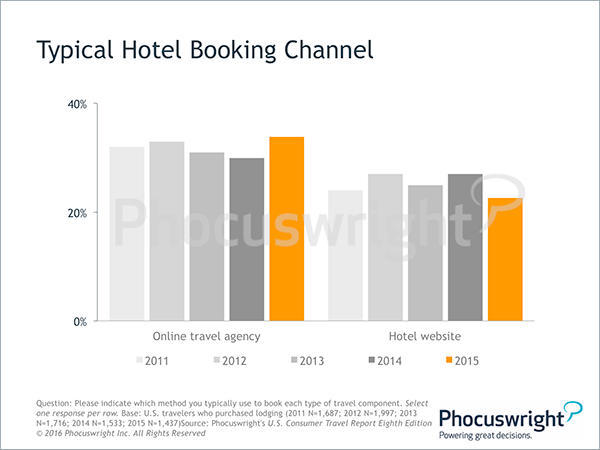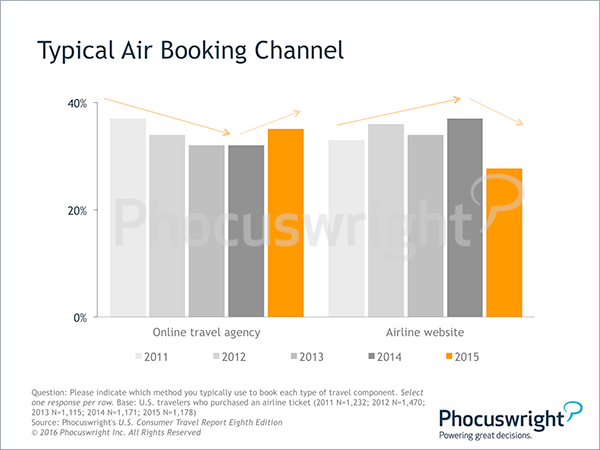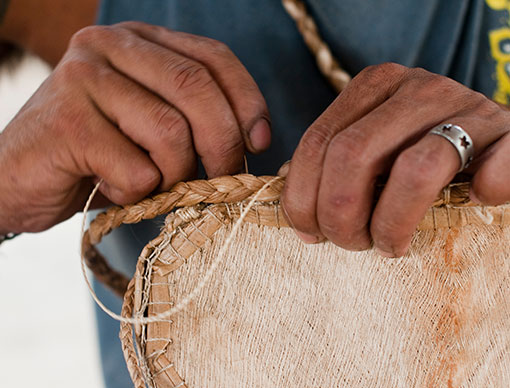Why OTAs Trended Better Than Hotel and Air in 2015
- Published:
- October 2016

In spite of loyalty programs and product simplicity, both hotels and airlines lost share to online travel agencies (OTAs) last year. At their core, OTAs are technology companies; they are better equipped to provide an easy-to-use, frictionless user experience than hotels and airlines. Phocuswright's U.S. Consumer Travel Report Eighth Edition provides key trends and metrics on U.S. consumer leisure travel behaviors and preferences.
When it comes to hotels, the travelers who prefer to book with OTAs typically outnumber those who prefer to book direct online. This gap between OTA and direct online bookers widened further in 2015 when the number of travelers who booked on a hotel website fell four points from 27%, while those that booked a hotel through an OTA rose four points to 34%.

(Click on image to view a larger version.)
OTAs also made a significant shift on the air side. Airlines have been succeeding in driving more direct bookings in recent years. But 2015 saw a reverse shift, where OTAs again became top choice by a comfortable margin.

(Click on image to view a larger version.)
"One of the factors contributing to this shift is the flood of younger travelers to the U.S. leisure traveler pool," says Phocuswright's research analyst, Brandie Wright. "Millennials have made a big impact on travel trends – and booking behavior is no exception. These travelers are more likely to be price-sensitive and brand-agnostic – which leads them to OTAs when it comes time to book."
Download Phocuswright's U.S. Consumer Travel Report Eighth Edition for analyses of core travel behaviors and preferences, as well as online and mobile trends, pertinent to connecting with consumers along the entire trip life cycle.







.png)

.jpg)

